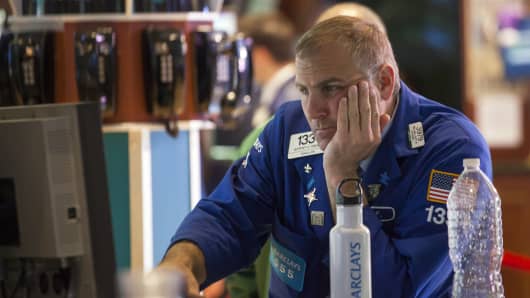Next, specialty finance company Hannon Armstrong ("HASI") priced 13.3 million shares at $12.50 per share, also well below the price talk of $14 to $16 a share. It provides debt and equity financing for sustainable agriculture projects.
Finally, organic chemical maker Taminco ("TAM") priced 15.8 million shares at $15 a share, again well below the price talk of $18 to $20 per share. It makes alkylamines that are used to neutralize acidity and remove contaminants in water treatment, and home care products, and animal nutrition.
What happened? You can point to the lousy stock market this week, but more than likely there was just less interest in these particular companies.
The fundamentals also may not have been as enticing: Both Intelsat and Taminco are private-equity deals (Serafina for Intelsat, Apollo Global Management for Taminco) that have a lot of debt. Apollo will still own 72 percent of Taminco after the deal, and it will have to pay a $35 million "termination fee" to Apollo. All of the money is going to Apollo and to pay debt. Same with Intelsat: it's all going to repay debt. Little or nothing is going to the companies.
This is a mild cautious signal for Seaworld ("SEAS") which is scheduled to price tonight. Interestingly, overnight it added 6 million shares to the offering, to 26 million shares from 20 million, at $24 to $27 a share.
Increasing the shares have not been great for after-market trading in recent IPOs. Last week, Invertec increased the number of shares going public, priced at $20 a share and is now underwater at $19 a share. Taylor Morrison Homes also increased the number of shares, priced at $22 a share last week, and is just barely above water at $23 a share and change.
I will be talking IPOs with David Ethridge, head of IPOs at the New York Stock Exchange, at 10:20 ET today.
Elsewhere:
1) Multi-industry earnings: A mixed bag. Multi-industry companies make lots of things (tools, machines, pumps, construction equipment, heating ventilation and air conditioning, etc.) that are sold to companies all over the world; it's the stuff that's behind the walls and a good indicator of global growth.
It's been a mixed bag so far. Today Danaher, a maker of testing, diagnostic, and medical equipment, reported a modest beat, but gave guidance for its current quarter of $0.80 to $0.85 a share, below consensus of $0.87 a share.
This is the second company in this space to disappoint, yesterday Textron warned, as well.
And yet ... fellow multi-industry giant Dover beat yesterday and reiterated their 2013 guidance. On Tuesday. W.W. Grainger reported earnings above expectations and raised the lower end of its 2013 sales and earnings guidance.
2) Gold and copper miner Freeport-McMoran Copper & Gold also missed as it sold less gold than anticipated; the stock is already at a 52-week low. Regardless: This is mostly a copper company, and copper near a 52-week low, with rising costs, is all you need to know.
3) Sherwin-Williams reported decent numbers and provided guidance for the current quarter within analysts' estimates. The improving housing market has been a big help as it has seen increased sales from paint stores. It closed at an historic high this week; the stock has doubled in a little more than a year.
—By CNBC's Bob Pisani










